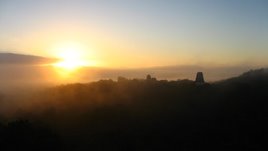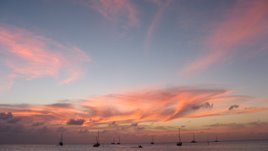This blog was written the 8 June.
This blog includes a bunch of randomness. Un mélange, if you will. I guess most of my blogs have been like that, but I think that is the best way to do it. So many things going on.
Travel difficulties, written 10 June. I have them a lot being where I am situated. I’ll give you the latest example. Yesterday, I got up at 5 am to go catch the 6 o’clock outta Dori to Ouaga. Everything was cool, and around 7:45, we are pulling into Tougori, where there is a barrage (a big man-made lake. They are fitted with what we call reverse bridges, or downward sloping plateaus. When the barrage is full, water runs over these reverse bridges in mass quantity, and quickly. To put it lightly, it can be very dangerous. Many vehicles tip over or shoot off the side of the road because they can’t see the edge due to the water. I would like to know what geniuses decided this was the best course of action!) Well, sure enough, there was a camion that had tipped it’s front left end over the edge, causing a back up.
We were forced to get off the bus and walk over to the other side on the almost finished bridge. Can’t wait until that thing is done, let me tell you! I didn’t grab my stuff (wish I had) because I thought after a while they would get the camion unloaded and outta there. Well, I waited on the other side of the barrage for a while, then another STAF bus shows up, and everybody gets on it. I was so far away from the barrage hanging out I didn’t see people had started ferrying their stuff to the other side to wait for the car. So, I was a little late for the first vehicle and ended up missing it. Then, I sat down in Tougori and got a beer and started tearing through Angela’s Ashes, Frank McCourt rocks. I’m sitting there, around 10:40, and another, empty!, STAF bus goes by. I load my gear, try to bike to the gare. It looked like I was gonna make it, then it pulled away. I am sure the Burkinabe got a kick out of seeing a screaming nassara on a bike, struggling to catch up to this bus. “Attend, attend,” j’ai crié. I was pissed when I missed that bus. Ended up paying 3000 francs CFA to get another bus. Frustrating, but I gotta keep that zen outlook, just go with the flow, not be in a hurry. A great lesson I learned too: if your bus stops to avoid something, grab all your gear and talk to the crew running the rig. Still, I hate transport in this country!
So, the school year is over. I finished up around the 20th of May. According to me and many other volunteers, the school year is too short. We started around the 10th of October and then we finish close to the end of May. C’est quoi, ça? Late November through February constitutes the cold season. Late March through May is the hot season. Finally, the rainy season runs from the middle of June to the middle of September. So, there is the answer to the question. The reason the school year is so short is because the people must get out en brousse to start preparing in late May/early June when the first rains delight the dry-as-a-bone earth. The people then plant their millet that will hopefully last them the whole year. This is a population that relies almost solely on subsistence farming. Some estimates put the employed work force of Burkina Faso around 15% of the population. Please, close your eyes. Imagine a place that is so dry, water is such a commodity, the ground not good soil but coarse sand (in some places like the Sahel, where I live). So, 15 out of a hundred are working, the rest doing what they can to survive. The statistics are probably a little skewed. Some people do handy work, some construction, things like that and get paid for it. Remember too that there still aren’t many banks in developing countries/economies such as here. People save their money in the forms of cows, sheep, and goats. Yeah, if there is a drought, where animals die and the crops don’t turn into enough to feed the family, there is a huge problem. These people are tough. They exemplify so many things I think are missing in Americans. But, given our relatively rich state, that’s why it is like that. As I have said before, be thankful for what you have and please, try and give something. Change the inequity that is a constant black cloud over our world.
That last thing I thought I would share with everyone is something I find funny and typical given my experience here. With all the things I am able to do because of my heritage, because of where I come from, because of the quality education I can take advantage of, I am very rich. Yet, I tend to think that I am not very rich, especially when it comes to straight revenue figures. Here, I am so rich. Most people take me as a tourist, I guess, and they ask for money. I go into the whole ‘I’m a volunteer’ line and try to disarm them, tell them I don’t have money. True, some big wig Fulani herder may have a lot of money in his cows, so technically, he’s got more than me. But, he doesn’t have the connections or abilities of this white guy, or better, privileged foreigner. I mean to point out a perceived racial inequality that exists in some peoples’ minds and also bring to peoples attention that many Africans, not all, think they are inferior because of their color. This inequality, bien sûr, does not exist dans mon esprit. White people have typically made darker-skinned peoples lives hell. Remember, everyone, celebrate diversity. Everyone is beautiful and the things they have to offer make this world a wonderful painting of all shades of colors.
Back to my story. My bon Moussa comes back with my water after he finishes doing the laundry. He tells me the guardian au lycée wants me to buy him a watch. I tell Moussa he’s crazy if he thinks I am just gonna buy him a watch. What is this? Am I just here to buy things for people? Am I a courier in a free-market economy here? No, I am a volunteer. Well, the next day, I take a bike ride on the route to Koutougou, a village 30 km northwest of Aribinda. On my way back, I see the guardian (I don’t know his name). He asks me about the watch. I tell him I am just going to Belehede, they don’t have watches there. I specifically tell him I am not going to Djibo. He cuts me off, demands a watch. I make no promise. “Je peux pas promettre rien.” He says, “Dieu est grand.” Oh, qu’est-ce que ca veut dire? That means exactly what, God is great or God is so great he can send us a rich white guy who can buy us whatever we need? I think not (regarding the second item, of course!). So, I saw the guy again a week ago. He tells me “Don’t forget the watch.” I tell him I can’t do it. I ask him for the money. He tells me he wants a cheap watch, nothing that’ll break the bank. In other words, I am treating him to a free watch. He demurred and now I am supposed to provide. Well, this guy will never get a watch from me. That’s for sure. I am not going to provide handouts. We should not provide handouts, this needs to be learned and communicated well to populations who do give. Americans give and volunteer a lot. I believe more in the great spirit of American charity now that I have been overseas. We need to promote education and smart aid programs, such as giving support in the form of expert-led development and grass roots projects. We must change the world in a top-down to bottom-up coalition, experts and smart supervisors at the top coordinating with volunteers and aid workers at the epicenter, in the midst of the culture, like the Peace Corps. Maybe some day that guy will get empowered to buy that watch for himself, huh? I guess it’s up to me to empower him! There’s a secondary project for me!
Beaucoup d’Amour tout le monde! Je vous verrai bientot!
Big Up from Aribinda
Tuesday, June 10, 2008
Subscribe to:
Posts (Atom)







